Science Council Board of Trustees
The Board of Trustees is responsible for the overall leadership of the Science Council, and in partnership with the charity’s constituent Members setting its values, standards, aims and objectives and delivering them in line with the objects of the Royal Charter. The Board is responsible for ensuring that the Science Council functions within the legal, regulatory and financial requirements of a registered charity.
The Board consists of a Chair (who is a trustee), between 8 and 12 Elected Trustees and up to 3 Appointed Trustees. The Board can also co-opt members to fill up to two elected trustee vacancies that may arise between General Meetings. Elected Trustees are elected by Member Bodies to serve in this capacity as individuals and not as representatives of organisations, interest groups or sectors. Elected Trustees serve a three-year term with the option of re-election for a further three years.
-
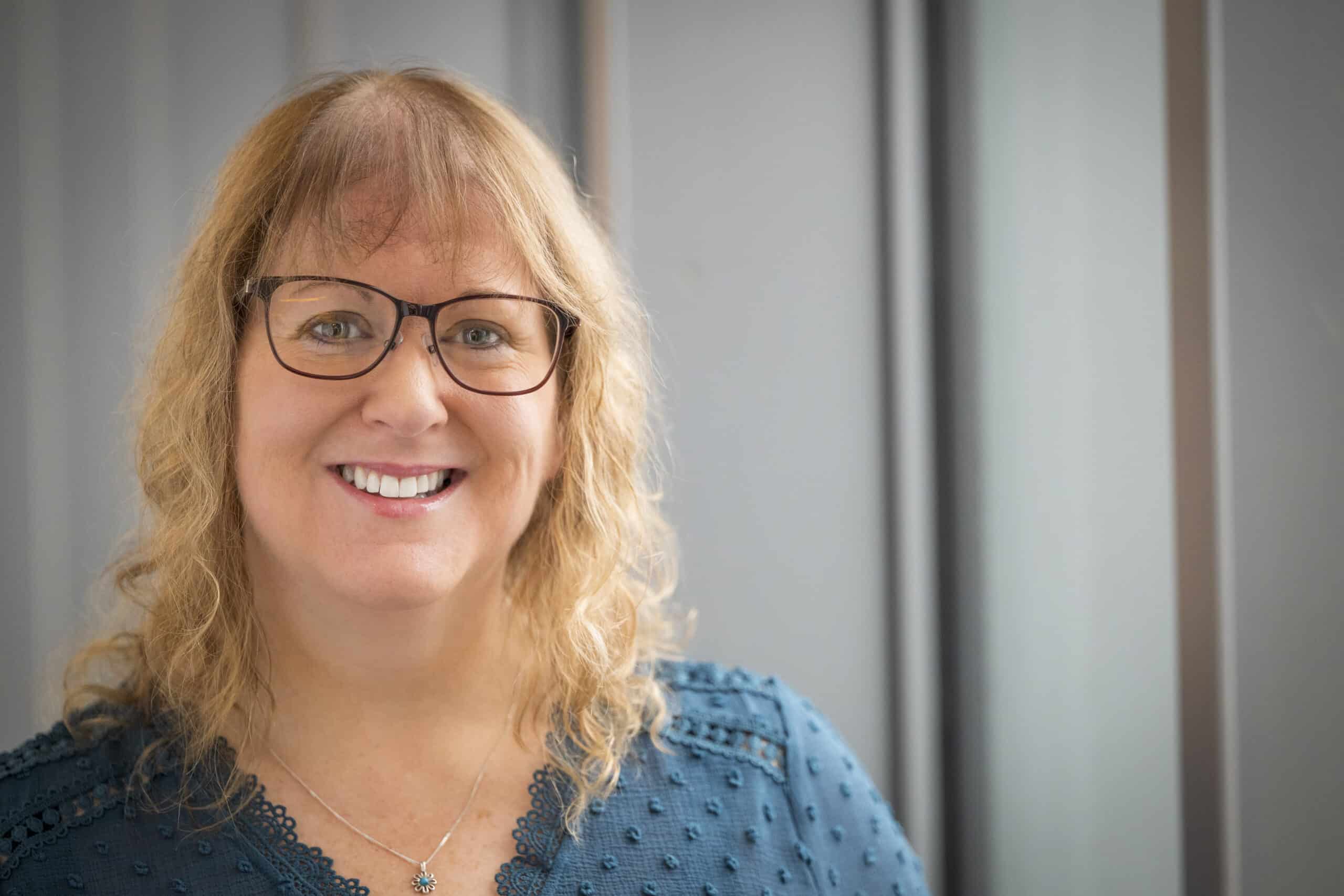
Claire Riley
Claire Riley is a Senior Engineering Leader at Sellafield Ltd, currently serving as Process and Compliance Requirements Owner for Technology & Science. She began her career at 16 as a Craft Apprentice Instrument Mechanic, gaining NVQ Level 3, ONC, and HNC qualifications before progressing into Control Systems Engineering. Claire later achieved a BEng (Hons) in Electronic Engineering from UCLAN and completed Sellafield’s Graduate Scheme, which provided broad technical and leadership experience.
Throughout her career, Claire has held senior roles including Engineering & Maintenance Capability Lead, Head of Outage Management & Site Integration, and Head of Asset Management Delivery. She is passionate about advancing diversity and inclusion in STEM and actively supports outreach, recruitment, and mentoring for early careers. Claire is a STEM Ambassador and a founding member of Sellafield WEST (Women in Engineering, Science and Technology), expanding previous networks to include science colleagues.
Claire is a member of the IET, Women in Nuclear (WiN), and an Associate Member of the Nuclear Institute. As a Science Council Trustee, she is committed to promoting professional standards, increasing diversity and equity, and inspiring future generations. Outside work, Claire enjoys crafting—especially knitting and crochet—and spending time with her family and pets.
-
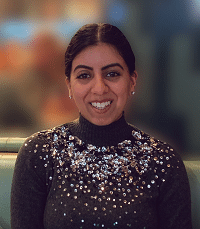
Daljeet Kaur Sandher
Daljeet is Head of Operations for Coventry and Warwickshire Pathology Service (CWPS) with operational oversight of the Biochemistry, Haematology, Blood Transfusion, Immunology, Virology, Microbiology, Histology, Mortuary, Phlebotomy and Specimen Reception departments across three NHS Trusts offering services to over 1.8 million patients across the region.
Daljeet is a registered Biomedical Scientist with the Health and Care Professions Council (HCPC) and a member of the Institute of Biomedical Science (IBMS). She has over 8 years’ experience in the NHS and has worked in various Pathology disciplines. She has a BSc and an MSc both in Biomedical Science, and has completed a Level 7 Diploma in Strategic Management and Leadership. Daljeet has particular experience in workforce strategy, recruitment and retention, and staff engagement. She is committed to raising the profile of Scientists and ensuring the future of the workforce is protected and expanded through training and development, and that these opportunities are accessible to everyone.
-
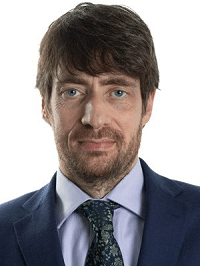
David Wells
David is recognised as being one of the 100 powerful advocates for pathology in the global community by the Pathologist magazine in 2018, 2019, 2020 and 2021. Until June 2021 David was leading the NHS England and Improvement Pathology consolidation programme, seeking to deliver efficient, high quality pathology services across England.
During the COVID 19 Pandemic David led NHS England’s laboratory response across the country by managing technology deployment, capacity, funding and workforce to ensure that all capacity requirements were met. The role included advising ministers and healthcare leaders whilst providing policy and strategic direction as a subject matter expert.
In recognition of this work and the work in transforming England’s pathology services, the Royal College of Pathologists awarded David Honorary fellowship of the college in 2020. David was also awarded honorary Doctor of Science by Anglia Ruskin University in recognition of his contribution to the national response during the pandemic. In 2021 David was awarded the CSO’s Lifetime Achievement award again in recognition of his leadership of Pathology services during the Pandemic.
David has a diverse and almost unique experience of providing and leading pathology services to primary, secondary and tertiary care across all pathology disciplines and out into other areas of Healthcare science and diagnostics.
David has previously been an elected IBMS council member for the London Region. David has also represented the IBMS on NICE diagnostic advisory panels, and various national forums including an observer on the Royal College of Pathologist Council and in the Parliamentary and Science committee.
David was appointed Chief Executive of the Institute of Biomedical Science in June 2021 to lead this global professional body representing 21,000 members across 74 countries. Additionally, David was appointed the Scientific Lead for Pathology, for NHS London, in September 2021.
-
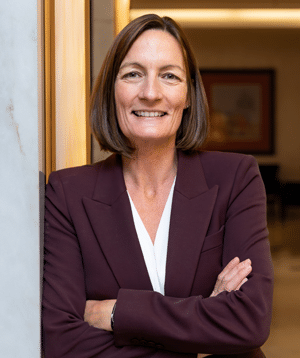
Dr Samantha Atkinson
Sam is the Chief Executive at TOPRA, joining the organisation in June 2025. Sam has 25 years’ experience working across the life sciences sector and enjoyed a successful career at the MHRA for 16 years, undertaking a variety of different roles from the Inspectorate through to Board level. Before leaving Sam was Chief Quality and Access Officer with accountability for regulatory activities across the UK supply chain. Sam also gained extensive experience in crisis management, having led national and international scale incidents, and was the Executive lead for the MHRA’s response to the pandemic.
Sam moved to the UK Department of Health & Social Care (DHSC) where she was appointed as the Director of Social Care Reform and SRO for the multi-£bn Social Care Charging Reform programme across the UK. Sam left the UK Civil Service at the end of 2022 and moved to work for a consultancy, developing and driving business growth strategies in new geographical target markets, such as in India.
Sam is passionate about improving outcomes for patients and the public, delivering through innovative solutions and using systems thinking to achieve improvement and changes at scale. Sam is a strategic leader, who has led the development and implementation of initiatives that have delivered accelerated life sciences innovation and market access, working with partners, across organisational and geographical boundaries.
-
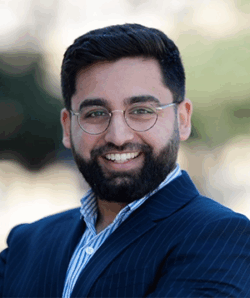
Hamzah Ahmed
Hamzah Ahmed is an engineering and sustainability specialist with a background in clean aviation, systems design, and international policy engagement. He began his career as an engineering apprentice at Airbus, where he progressed to lead cross-border programmes on sustainable aviation fuel (SAF), infrastructure decarbonisation, and future aircraft systems.
Driven by a deep interest in climate science, Hamzah is passionate about bridging the gap between scientific insight and applied engineering solutions. He has contributed to international sustainability efforts through IAEG, ASTM, and the UN ECOSOC Youth Forum, where he has championed evidence-based, systems-level approaches to climate action.
Hamzah also served on the Institute for Apprenticeships and Technical Education’s Apprentice Panel, where he advised employers on equity, diversity and inclusion (EDI) best practices and supported national STEM outreach initiatives. He continues to advocate for more inclusive pathways into engineering and for stronger links between technical innovation, public policy, and global climate goals.
-
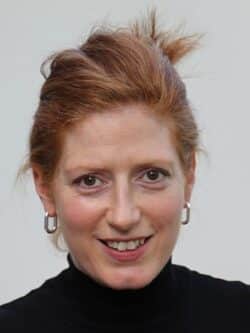
Harriet Gould
Harriet works in the commercial team at the Royal Society of Chemistry, offering guidance to companies on marketing strategies and advertising campaigns. You can also find Harriet on all major podcast platforms as the host of Lab Matters where she invites a talented selection of scientists and those in the field to talk about their experiences. Harriet has a passion for making all aspects of science relatable and accessible. She completed her Social Sciences certificate in 2020.
Before corporate life, Harriet was a show jumper on the junior international circuit and still rides occasionally. More recently, she learned to swim in order to complete the London Classics challenge and then wrote a book about it; Water Force.
-
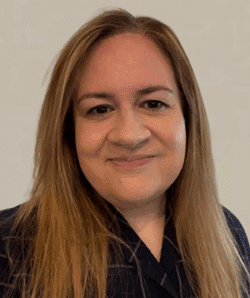
Jane Packer
Jane Packer is the Head of Standards at BSI, the UK’s national standards body (NSB). The NSB is appointed by the government to develop British Standards and represent the UK’s interests in standards development at a European and global level.
Jane is responsible for standards relating to quality management, health and safety and workplace wellbeing. This includes overall responsibility for the UK’s input into the development of ISO 9001 Quality Management Systems and ISO 45001 Occupational Health and Safety Management Systems and the development of new British standards including those on suicide awareness and menopause and menstruation in the workplace.
Before working at BSI, Jane worked in the health sector for 17 years, including at the Royal College of GPs as Head of Certification and before that in community and hospital pharmacy.
She has a degree in Biomedical Materials Science and Engineering and is a Chartered Fellow of the Chartered Management Institute.
In her time outside work, Jane loves to travel and has a particular fondness for the USA and Japan. She also loves live music and concert photography and likes to experience concerts in different countries around the world.
-
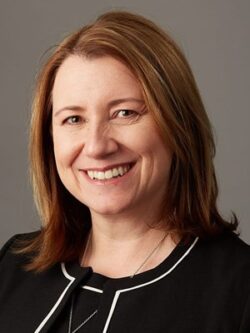
Lorraine Turner
Lorraine Turner is an independent consultant providing advice and support to businesses on quality assurance and conformity assessment. Lorraine was previously the Accreditation Director at the United Kingdom Accreditation Service (UKAS), where she was responsible for setting, driving and maintaining technical policy, customer service standards and management of business risks. Lorraine also oversaw the international technical engagement strategy for UKAS and led the development of new accreditation services.
Lorraine is a Chartered Chemist and started her career as an analytical chemist before joining UKAS in 1995. Lorraine is an experienced Board Director have sat on the UKAS Board and on the Board of the International Laboratory Accreditation Cooperation until Sept 2025.
Lorraine has extensive experience providing advice to government on scientific and policy matters in areas such as forensic science and healthcare diagnostic testing. She is a member of the Building Safety Regulator’s Industry Competence Committee and has previously been a member of the Laboratory Expert Group for the World Anti-Doping Agency.
-
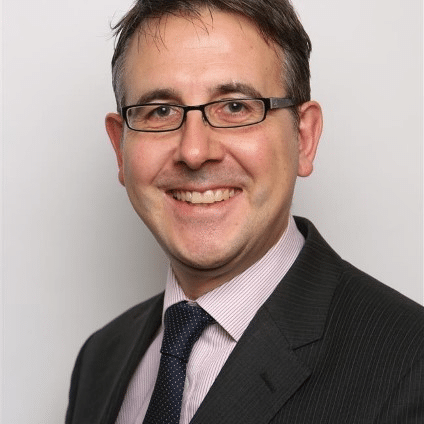
Martin Caunt
Martin Caunt is Deputy Director for NHS England’s Greener NHS programme, where he leads data and analytics to drive the NHS’s net zero commitments. With over 25 years’ experience, including roles in the Government Operational Research Service, Martin has built the evidence base for the NHS’s net zero commitment, represented the NHS at WHO forums, and established the Improvement Analytics Unit with the Health Foundation. He also played a key role in delivering the Care Act 2014.
A values-driven and inclusive leader, Martin actively contributes to equality, diversity, and inclusion in policy and practice, ensuring compliance with the Public Sector Equality Duty and championing initiatives that promote opportunities for underrepresented groups. He is committed to fostering environments where all voices are valued and opportunities are accessible to everyone.
Martin served as a school governor for eight years and holds an MSc in Operational Research (Southampton) and a BSc in Mathematics with Economics (Loughborough). He is a member of the Operational Research Society and the NHS Chief Data and Analytics Officer Network. He believes in the power of evidence-led, compassionate leadership to drive meaningful change.
-
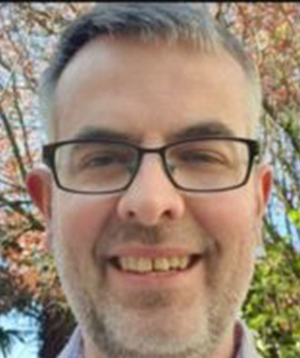
Matthew Davies
Matt is the Royal Society of Chemistry’s Public Affairs Manager. He has over 20 years of experience in public affairs, engaging with government, parliament and other stakeholders to effect change in public policy. Having started his career as an MP’s researcher and then working in the health sector, Matt has since headed up public affairs at organisations such as Shelter, RNIB and Cancer Research UK before moving into the science sector. With previous experience as a media officer too, Matt has a keen interest in language and communication, originally sparked by studying Politics, German and Psychology at Durham University. He stood for election to the Science Council board to be able to use his knowledge and experience in translating often complex ideas into high impact engagement with ministers, shadow ministers and other parliamentarians. In addition, Matt works to engage individual scientists in public policy influencing, to maximise the effectiveness of the science sector’s voice. Matt is also a trustee of LGBT+ adoption and fostering charity New Family Social and lives in Brighton with his husband and son. In what spare time is left, he enjoys going to live music, reading and collecting books and is a season ticket holder at Tottenham Hotspur.
-
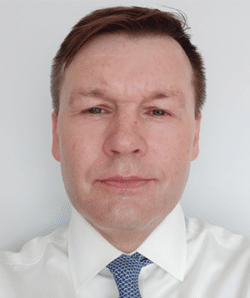
Niels Pedersen
Following a career in banking, Niels now focuses on the not-for-profit sector. He holds an M.Sc. in Charity Accounting and Financial Management from Bayes Business School. He is the Treasurer and Vice-Chair of Young Camden Foundation, the Treasurer of Islington Law Centre and a charity-sector voluntary management consultant for the Cranfield Trust. The latter role involves providing free consultancy services to small- to medium-sized charities. Prior to the move to the not-for-profit sector, Niels spent 30 years in corporate and investment banking working for Mitsubishi UFJ, Bank of America and Barclays, and serving UK and international corporate clients. At Barclays, Niels was part of the senior leadership team for Corporate Debt and was head of Corporate Loans Transaction Management. Niels, originally from Denmark, left his home country in 1989, to work, for a short period, in Sapporo, Japan before moving to London in 1990. Niels enjoys the cultural offerings of London but also enjoys getting out of the capital to go hiking.
-
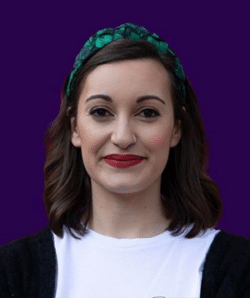
Roya Ziaie
Roya has over 8 years’ experience working in healthcare and medical research policy across charities, government and academia. She is currently working in consultancy as an Associate Director at Incisive Health, where she supports clients to develop engaging campaigns that drive policy change for patient benefit.
Prior to this, Roya worked at the Department of Health and Social Care in policy across genomics, advanced therapies, rare diseases and vaccines. During her time in government, Roya was also an active member of the Government Science and Engineering profession. Roya has held previous policy roles at The Institute of Cancer Research, and the Microbiology Society.
Roya holds both an MSc and a BSc in molecular genetics from the University of Nottingham and King’s College London, respectively.
-
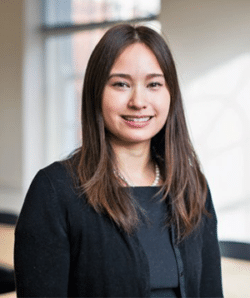
Stephanie Smith
Stephanie Smith is Deputy Director of Policy at the Russell Group and is primarily responsible for policy relating to research and innovation. She joined the organisation from Universities UK International in 2014, where she helped to found UUKi’s outward mobility policy programme. Before this, she worked at the Council of Deans of Health, the representative body for university faculties engaged in education and training for the nursing, midwifery and the allied health professions. Stephanie began her career working in think tanks including the Royal Society of Arts and Institute for Citizenship.
Stephanie holds an MSc in European Politics and a BSc in Political Science, both from the London School of Economics.
-
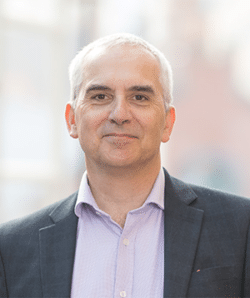
Timothy Magness
Tim is a marketing senior with over 30 years of experience within the technology sector in the UK and internationally, primarily in partnership with the public sector. His area of expertise comprises strategic development, positioning and brand management and stakeholder engagement. Most recently he was Chief Marketing Officer for UK-based software company Civica, where he was responsible for all aspects of marketing from launch in 2002 to a global market-leading business with a strong people-first culture.
Tim’s academic focus centred on mathematics in which he retains a continued interest. He has a BSc in Mathematics & Computing and began his career in software development before moving into marketing. For much of his career Tim remained a Chartered Marketer (DipM) with the Chartered Institute of Marketing. He has worked alongside professional communities and networks throughout and is keen to help the Science Council to continue to develop and deliver an ambitious vision.
Other recent activities include volunteering on the Board of a corporate fundraising programme for Action for Children, and as a volunteer for Wiltshire Digital Drive, which refurbishes and redistributes second-hand tech free of charge to people who are digitally excluded.
Subcommittees
The Science Council Board of Trustees delegates various functions to its three sub-committees:
Registration Authority
The Registration Authority advises the Science Council Board on matters relating to the four professional registers and is responsible for upholding the registration standards. Members of the Registration Authority are employees or volunteers from Licensed Bodies who have expertise in registration and licensing standards and practice. All members are appointed by the Board of Trustees. The Chair of the Registration Authority attends Board meetings in their capacity as Chair of the Committee.
- Karen Brazier CSci (Co-chair of the Registration Authority)
- Russell Wilson CSci (Co-chair of the Registration Authority)
- Dr Hilary Jeffreys CSci (Chair of the Registration Authority until May 2026)
- Sophie Dunajko (Vice Chair of the Registration Authority)
- Paul Ashford CSci
- Cliff Collis CSci
- Katy Grundy
- Brenda Peters CSci
- Lorraine Turner (trustee)
- Daniel Kearns CSci
- Ryder Idawari CSci
- Mohammed Jahangir
- Karen Brazier CSci
- Robert Cast RSciTech
- James Barker CSci, CSciTeach
Observers from the Engineering Council and Society for the Environment are invited to attend Registration Authority meetings.
Download the Registration Authority’s Terms of Reference.
Finance, Audit and Risk Committee
The Finance, Audit & Risk (FAR) Committee helps the Science Council Board meet its responsibilities with regard to financial systems and controls including regulatory and statutory compliance and risk management. The Committee is composed of trustees, who may be independent members, and non-trustee independent members. Non-trustee independent members are appointed by the Board and have recent, relevant financial and/or accounting expertise. The Chair of the FAR Committee is an independent member and attends Board meetings in their capacity as Chair of the Committee.
- Mark Allison (Independent Chair)
- Jasdeep Gill (Independent member)
- Tim Magness (trustee)
- Niels Pedersen (trustee and Honorary Treasurer)
- Lorraine Turner (trustee)
Download the Committee’s Terms of Reference.
Nominations Committee
The Nominations Committee provides, develops and maintains formal, rigorous and transparent procedures for Board and other key appointments. All Committee members are trustees of the Board.
- Daljeet Sandher (Chair)
- Matthew Davies
- Stephanie Smith
- Roya Ziaie
Download the Nominations Committee’s Terms of Reference.
please visit our vacancies page.
Interested in volunteering with us?
If you have an interest in a particular governance area and would like to explore current vacancies,